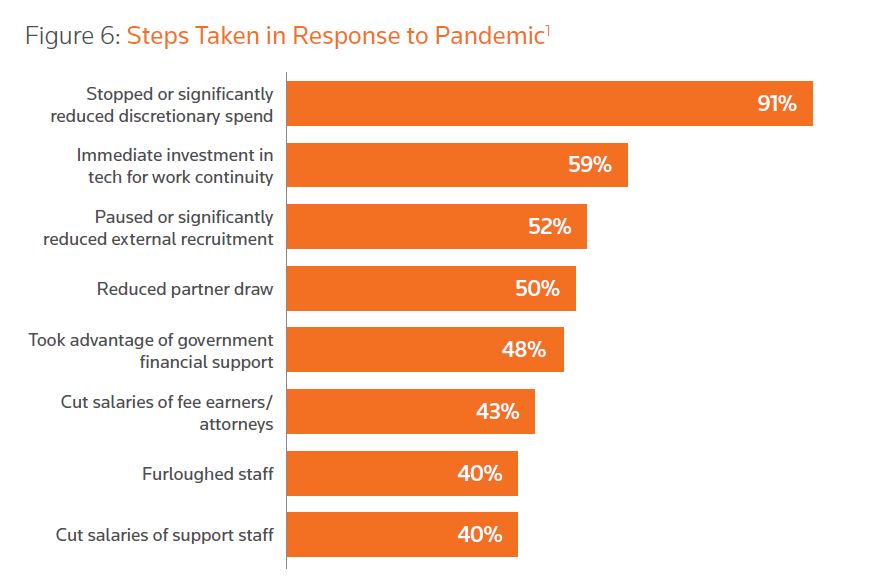The "Law Firm Business Leaders 2020" report seeks to understand the mindset of those business pros tasked with running the business operations in law firms
Law firms must be able to run effectively as a business. This has been true for a long time, and it has become all the more apparent in 2020. This means that firms need to have individuals within the leadership of the firm who understand the realities of their markets and can anticipate and react to risk quickly.
The old law firm business model often saw the various business management responsibilities within the firm doled out to designated partners. This often created a tension of conflicting duties under which the finance partner, library partner, marketing partner, and even managing partner had to divide their attention among the sometimes competing priorities of their partnership role and their management role.
In such a contest, the partnership role most often prevailed because, in reality, each partner was being compensated first and foremost as a partner responsible for managing and billing clients — not as a business executive. The execution of the business side of their roles simply did not weigh as heavily on the scales of their personal success; as a result, business functions too often took an understandable, albeit regrettable, backseat to day-to-day practice demands.
Over the past 15 years or so, however, we have seen the responsibility for managing the business side of law firms begin to shift away from partners and toward professionals who are specifically tasked with running the firm’s business operations.
Charting the business of law
Beginning in 2019, the Thomson Reuters Institute, in collaboration with our partners at the Georgetown Center on Ethics and the Legal Profession and the Association of Legal Administrators, introduced the Law Firm Business Leaders Report to better understand the outlook and mindset of those allied professionals tasked with running the business operations within law firms.
To this end, we have published the latest research in this series, the 2020 Law Firm Business Leaders Report.
As law firms, like other businesses, have scrambled to understand the impact the pandemic is having, they have increasingly looked to their business professionals to provide accurate and actionable insights to better guide their decision making. In surveying these business professionals, it became clear that the insight they gained in gathering and disseminating their knowledge has influenced their outlook on where they see risk and opportunity for their firms.

A few key findings from the new report include:
- Economic concerns top the list of identified threats to profitability, but law firm business leaders are also still keenly attentive to how their own staff members and the attorneys within their firm perform.
- Overall, firm business leaders are bullish on their future outlooks (over the next three years), but are quite guarded in terms of future expenditures.
- While controlling costs is a key concern for law firms, they appear hesitant to consider outsourcing many key functions, preferring to keep most types of legal tasks in-house.
- While many, if not most, firms are looking for technology solutions — particularly advanced tech such as artificial intelligence — to address some of their strategic challenges, other firms are still hesitant to adopt such solutions, leaving them at risk of falling further behind their competitors.
- Law firm business leaders feel empowered to drive change, but many are still dealing with partners who appear hesitant to commit to changes in their firm’s legal service delivery models.
Today’s law firm business leaders also shared their thoughts on anticipated practice performance, and how much the pandemic has accelerated or altered their strategic visions for their firm’s future.
You can download the full 2020 Law Firm Business Leaders Report here.






